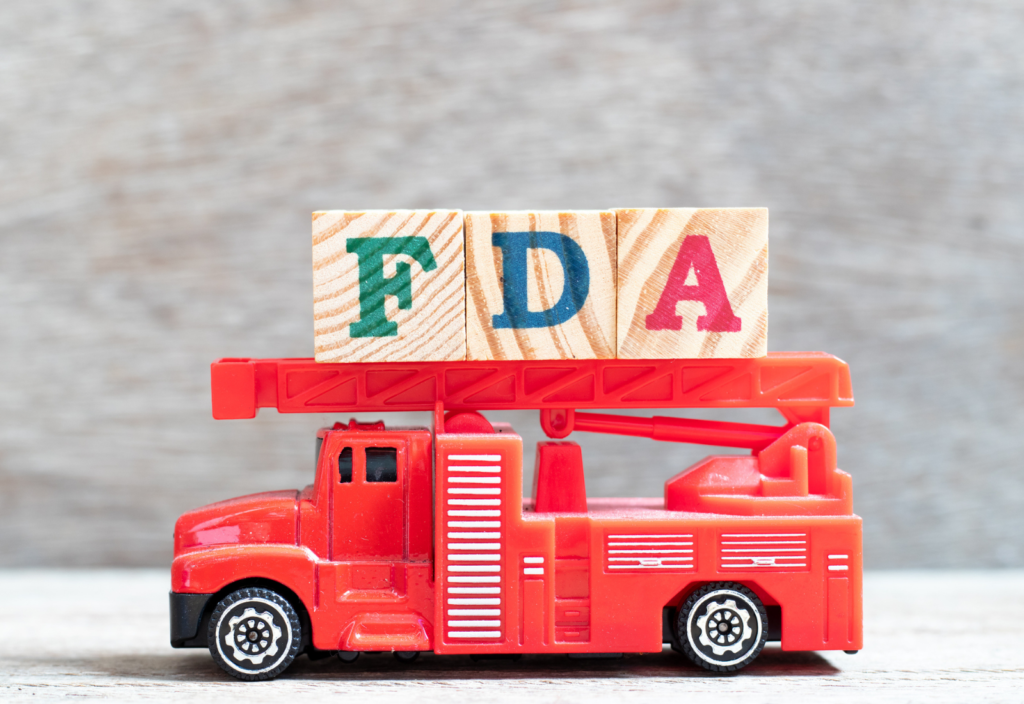On Tuesday, the Food and Drug Administration (the “FDA”) released its first statement via a consumer update regarding Delta-8 tetrahydrocannabinol (“Delta-8 THC”). The agency decided to provide consumers with key information surrounding the popular cannabinoid following a sharp increase in adverse event reports involving the substance and unauthorized marketing practices directed at minors.
If you follow my posts, you know that state regulators have been concerned with these issues for months now. In fact, many have either banned the substance or tasked state regulators with imposing strict manufacturing, testing, and marketing requirements on these products, including limiting their sale to persons of 21 years of age or older.
In its consumer update, the FDA warned consumers of the following issues about Delta-8 THC products:
Delta-8 THC Products Have Yet to Be Evaluated and Approved by the FDA
The agency reminded consumers that Delta-8 THC products have yet to be evaluated or approved by the FDA for safety. Their main concerns include variability in product formulations and concentrations. The agency also fears that many of these products are marketed as “hemp products”, which may lead consumers to assume these products are non-psychoactive. In addition, the FDA is denouncing the proliferation of Delta-8 THC products marketed for therapeutic or medical uses despite the lack of FDA approval. Such marketing practices are perceived as deceptive and dangerous by the FDA as they fear they will lead consumers to use Delta-8 THC products instead of approved therapies to treat serious or even fatal diseases.
Delta-8 THC Products Have Been Reported as Causing Serious Health Issues
In the past three years, the FDA and national poison control centers have received numerous adverse event reports (from 22 patients) and exposure cases (661) involving the consumption or exposure to Delta-8 THC, many of which triggered vomiting, hallucinations, trouble standing, and loss of consciousness, often requiring hospitalization, including ICU admission of children following exposure.
Delta-8 THC Products Have Psychoactive Effects
The FDA is particularly concerned with the enhanced intoxicating effects of Delta-8 THC because these products contain much higher levels of the substance than are naturally occurring in the hemp plant. Therefore, consumers cannot rely upon historical use of cannabis to assess a level of safety for using these products.
Delta-8 THC Products Often Contain Harmful Chemicals
Because Delta-8 THC is not expressed in sufficient concentrations in most hemp strains to make its extraction financial viable, most Delta-8 THC on the market is derived from the chemical conversion of hemp-derived cannabidiol (“CBD”). As such, the FDA is concerned that some manufacturers may use potentially unsafe chemicals to convert Delta-8 THC through this chemical synthesis process. Moreover, because the manufacturing of these products is vastly unregulated, the agency fears they may occur in uncontrolled or unsanitary settings, which may lead to the presence of unsafe contaminants or other potentially harmful substances.
Delta-8 THC Products Are Not Suited for Children or Pets
Manufacturers are making and marketing products that appeal to minors, such as gummies, chocolates, and candies. Furthermore, many of these products can be purchased online and at retailers, such as 7-Eleven, where there may not be age limits on who can purchase these products (I discuss this issue in this Refinery29 article). Many of the poison control center alerts triggered by Delta-8 THC involved pediatric patients, but also pets who are inadvertently exposed to the substance.
The FDA closed its consumer update by informing the public it “is actively working with federal and state partners to further address the concerns related to these products and monitoring the market for product complaints, adverse events, and other emerging cannabis-derived products of potential concern.” Yet, ironically, by delaying its rulemaking process and by failing to implement meaningful reforms surrounding products infused with hemp-derived cannabinoids, the FDA has created the very problem it is pointing to in this update and other public statement it has made about these products.
Hopefully, the steady increase in adverse event reports will finally pressure the FDA to stop kicking the cannabinoids can down the road and forge a legal pathway for these products to help self-regulated stakeholders stay in business as well as protect public health and safety.
























